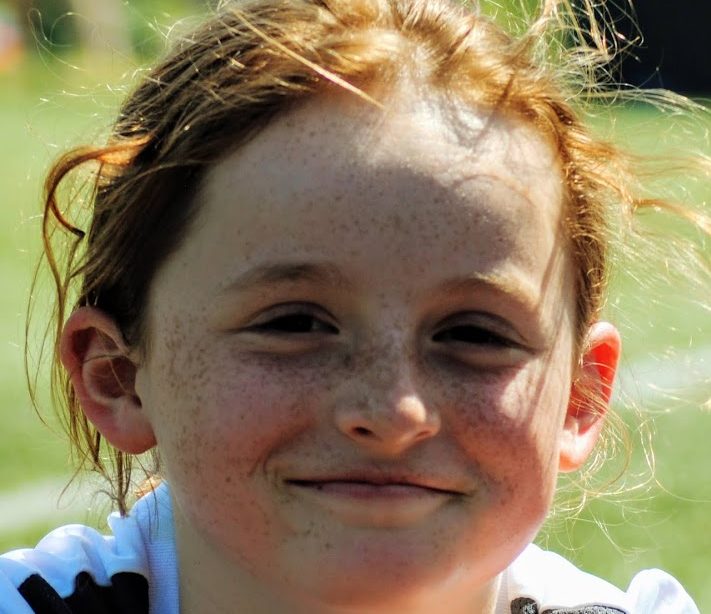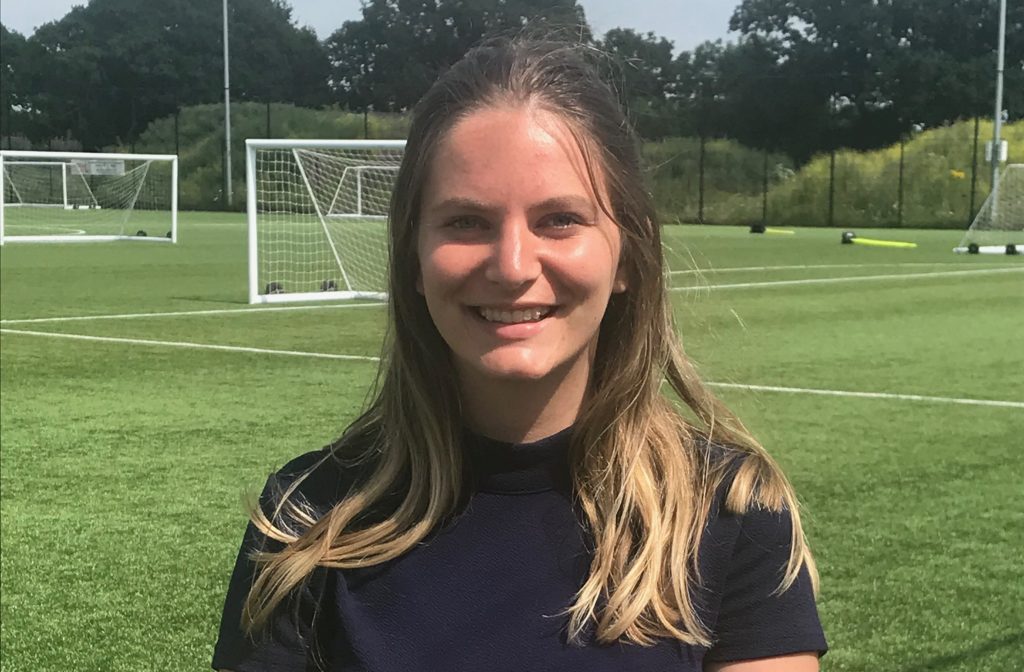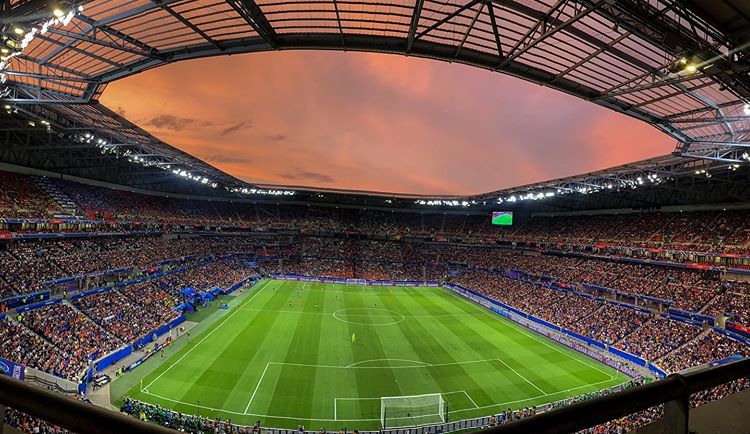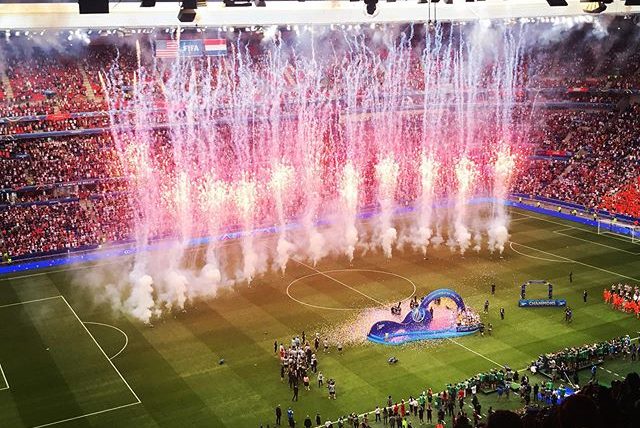As the final pieces of confetti are swept away from the Stade de Lyon after the USA’s historic World Cup victory this weekend, it feels like an apt time to take stock of just how far women’s football has come.
While England’s Lionesses failed to lift the trophy, instead walking away in fourth place, as Rebecca Myers of The Times writes (£) wrote, while “a dream died”… “a brave new football era is lacing up its boots”.
At home and abroad, we’ve seen both great successes and setbacks. A record-breaking 11.7 million people tuned in to see England in the semi-finals – the most watched British broadcast of the year.
Yet, at the same time, the Women’s FA Cup remains without a sponsor, and The Times (£) reports that neither the FA nor the Premier League considers themselves capable of expanding the highest, fully professional tier, the Women’s Super League.
Elsewhere, Professional Footballers Australia have raised gender discrimination concerns with FIFA over the unequal prize money given to the sport, while Ballon d’Or winner Ada Hegerberg has continued her boycott of the Norway international team.
‘We Can All Kick A Ball’
But what’s been the impact on the women involved in football back at home? And what has it got to do with our human rights? It’s a question perhaps best summed up by 11-year-old Isla, who’s been playing football for the last 18 months.

Isla has been playing football for a year and a half after her friends decided to set up a team. Image Credit: Mel Hunter.
“We can all kick a ball,” she tells RightsInfo, when asked why men and women’s football should be treated equally.
“Women are equal to men, and women and girls can play football just as well as boys and men.” Put another way, it’s a question of equal opportunities for all of us.
Explaining how she got into the game, she adds that football has “changed her life”. “I started playing because I saw both boys and girls playing and I wanted to play like them. My friend’s dads were setting up a girls football team because their daughters wanted to play so I signed up.”
I started playing because I saw both boys and girls playing and I wanted to play like them.
Isla, 11
Asked if she thinks the Women’s World Cup will be important, she’s pretty clear. “Yes, I do,” she says. “It is a chance for girls to get inspired and for women’s football to be recognised as an important sport.”
‘We’ve Watched Some History Being Made’
Women’s football in the UK has come a long way since it was banned by the FA in 1921– something which would take some 50 years to be overturned. However, it’s not without its challenges. While showpiece games like the FA Cup Final can attract more than 45,000 people, the average attendance for professional clubs is less than 2,000. But for who’s been following the game, many say it feels like a watershed moment.
Over and out after 35 days at the #FIFAWWC This tournament has been incredible for so many reasons, not least of all the sneaking suspicion that we’ve watched some history being made. Thank you to everyone who read and commented on our coverage, it means the world 🏆 pic.twitter.com/U6byzu32Il
— Rebecca Myers (@rebeccacmyers) July 8, 2019
“This tournament has been incredible for so many reasons, not least of all the sneaking suspicion that we’ve watched some history being made,” wrote The Times’ Rebecca Myers.
“Once it was lonely being a female football fan,” writes Julie Welch in The Guardian.
“These women look great,” she continues. “They’re confident and uninhibited. They’re not forced to be demure, or expected to make the sandwiches or told to shut up. Football is a kind of universal language. It always was, but females were shut out of it and now they aren’t.”
Football is a kind of universal language. It always was, but females were shut out of it and now they aren’t.
Julie Welch, football reporter
Back on the ground at clubs across the UK, there’s also a feeling of potential. “It’s in a great place at the moment,” Chloe Pizzey, a 21-year-old press and communications officer for Charlton Athletic Community Trust, who also works with the women’s team.
‘Every Game That Goes By, More People Are Getting Involved’
However, she adds: “There’s still, I would hope, a lot more to achieve in the game, but I think it is getting more coverage. Sort of, every game that goes by, more people are watching it, getting involved.”

Image Credit: Chloe Pizzey
“It’s in a great place at the moment, but I think by the next World Cup, it’ll be in the best place then as well. I think that each World Cup that goes by, it’ll be in a better position each time.”
You don’t want to limit opportunities for young girls to think they can’t play football.
Chloe Pizzey, press and communications officer for Charlton Athletic Community Trust
As the sun sets on another World Cup, it’s vital to keep the momentum going in our own leagues though, not just waiting until the 2023 World Cup, with Chloe pointing to issues such as funding, and top players being forced to work alongside their footballing career, though she adds “it’s come so far in such a short space of time”.
‘Inspiration Is Amazing’
And for Chloe, inspiring the next generation of women footballers is a crucial part of the game on a local level – and something which is fundamentally about providing equal opportunities to everyone, no matter what their gender.
“Working at Charlton, you can just see how excited the young girls get when players come over to speak to them. And it’s amazing because you can see, they’re looking up to the female player. And it just gives them motivation. And inspiration, which is amazing.”

Image Credit: Natalie4815/Instagram
“I think the more that happens, the more girls are going to get into football. Even if they don’t want to play it, if they still watch it, or, you know, are involved somehow I think it’s brilliant. You don’t want to limit opportunities for young girls to think they can’t play football.
They have those role models to look up too. So they know they can achieve that goal – just what they want to do.
Chloe Pizzey
“[Now] they have those role models to look up too. So they know they can achieve that goal, just what they want to do.”







